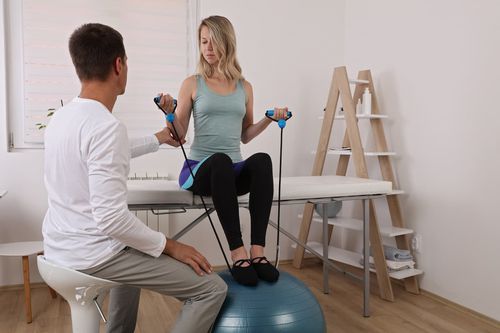What is Applied Kinesiology?
Applied kinesiology is a holistic way of detecting any imbalances in the body's physical, emotional, energy or chemical fields using muscle testing. Every muscle in the body is connected to a specific gland or organ, structure, nerve and meridian system. Through applied kinesiology, you can identify what's out of balance through a weak muscle and what modality can correct it.
A trained practitioner of applied kinesiology can help restore the health of the nervous system, reduce chronic pain, strengthen the immune system and improve the functions of the organ systems to prevent a wide range of diseases.

Why Study Applied Kinesiology?
Training to become a practitioner of applied kinesiology will equip you with the skills to identify the root cause of a health condition, and employ the appropriate healing modality to restore the body's functions. This goes without saying that applied kinesiology serves as a useful adjunct for all types of natural therapies, ranging from massage and acupuncture to counselling and nutrition.
What Does It Take to Study Applied Kinesiology or Become a Practitioner of It?
Whether you're a medical doctor, a nurse or a practitioner of complementary medicine, you can study and benefit from applied kinesiology. Having a good understanding of the body's structure and functions is going to get you ahead of everyone else in the class. But nothing beats a practitioner who's empathetic, compassionate, genuine about helping others and a good listener.
Course and Study Options for Applied Kinesiology
There are different learning pathways to consider in becoming a certified practitioner of applied kinesiology, such as a certification program, a diploma-level qualification or even an advanced diploma.
Pick one and learn about muscle functions and different holistic therapies for addressing physical and emotional health conditions on-campus, online or through a blended learning system. Note that some courses may require you to satisfy certain prerequisites, so it would be best to contact the school of your choice and discuss this thoroughly with them.
How to Choose a School or Course in Applied Kinesiology
Because you want to be eligible for membership in relevant kinesiology associations after graduation, the most important thing to consider when scouting for a college or university is the accreditation of the institution. Moreover, see to it that your preferred course provider meets the educational standards set forth by the Australian Qualifications Framework to ensure that it's capable of providing you with industry-recognised qualifications.
At the top of this page, you will find a comprehensive list of qualified course providers. Besides the school's location, curriculum, course fees and delivery method, you want to check the career outcomes of their graduates to be able to gauge the effectiveness of their teaching methods.






